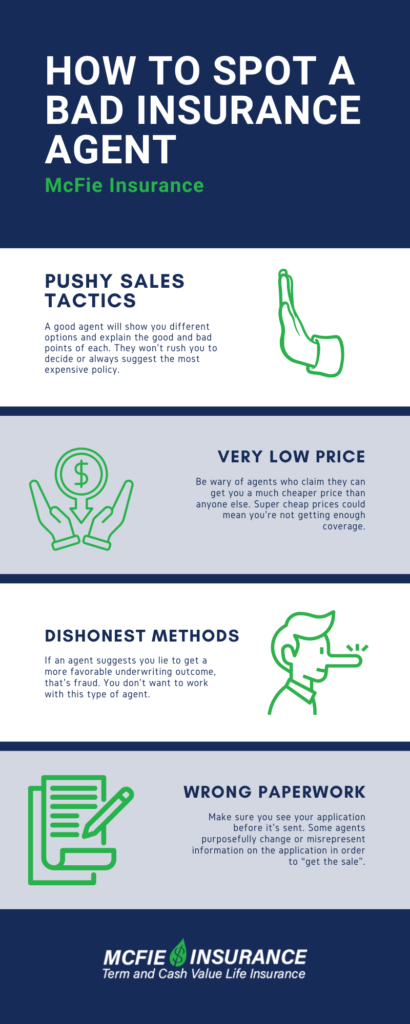702-660-7000
702-660-7000

The marketing practices of many life insurance companies require new agents to refer family and friends early on in their training so they can quickly generate commissions as well as profit for the insurance company. This training practice encourages the sale of life insurance products that may or may not be in the best interest of the policyholder. To avoid feeling obligated to purchase life insurance from a family member or friend it is important to understand the 5 things, who, what for, why, when and how.
In a perfect world, everyone would be able to get life insurance. However, those who wait until they’re older or after their health has declined might find it too expensive to insure their own lives. But this shouldn’t stop someone older or in poor health from buying life insurance for someone younger or healthier they care about, like children, grandchildren, or employees. This move can benefit both the policy owner and the insured person in many ways. Still, it shouldn’t be the first option an agent recommends.
Agents have been known to abuse this option in an attempt to get older friends and family to make a life insurance purchase, regardless of the need or usefulness the policy may provide to the owner or the insured. Always evaluate who needs the life insurance along with what for.
All life insurance has a primary purpose. To provide an income when the insured dies. Besides this main purpose, life insurance can be used to financially cover short term liabilities like paying off a:
Term insurance is the go-to choice for covering short-term needs if the family’s main income earner passes away unexpectedly. It’s a type of life insurance that pays out a set amount to the people named in the policy if the insured person dies. Term insurance is great for covering essential expenses like paying off a house, funding kids’ education or weddings, clearing shared debts, and providing a financial safety net for the surviving spouse. It’s especially cost-effective if bought by someone who’s healthy and under 45. But remember, the older you are when you get term insurance, the more you’ll pay.
But, be wary of life insurance agents pushing term insurance for the wrong reasons. The idea of “Buy term and invest the difference” can be misleading. It suggests that saving the money you’d spend on more expensive permanent insurance will be enough to retire on. But that’s often not the case. In reality, more than 70% of Americans need permanent whole life insurance to secure their retirement, not just term insurance and investments.
Consider that 98% of term life insurance policies never end up paying a death benefit. This doesn’t mean term life insurance is unnecessary; it just means it’s not the one-size-fits-all solution for every life insurance requirement. When used for its intended purpose, like replacing income after the unexpected death of a family’s main earner, term life insurance can be both affordable and useful. It serves as a temporary solution, offering families financial stability until they’re in a position to opt for or add whole life insurance.
Some term life insurance plans offer the option to switch to whole life insurance later, without the need for a new health evaluation. This feature is particularly valuable for those whose health may decline but who still require a policy to cover them for life. Having term life insurance is a smart strategy for future planning, but it shouldn’t replace the comprehensive coverage that permanent whole life insurance provides. Be cautious: relying on term insurance when permanent coverage is more appropriate could make term insurance the most costly insurance option in the long run.
This is a question best answered without fear tactics. Fear is often used in attempts to persuade someone to purchase something they wouldn’t normally consider purchasing. Life insurance agents have been known to toss fear and even greed into their sales presentation, knowing these two emotions are powerful motivators which make people take action.
The Naked Truth of Why it is Good to Own Life Insurance:
Everyone should have life insurance because, in the end, we all face mortality. But that doesn’t mean you should break the bank to get insured. The cost of life insurance should be manageable for the client, not just a means for an agent to earn the biggest commission.
Agents typically make their money from selling policies, with the largest chunk of their commission coming in the first year. While some agents might sell numerous policies and then move on without looking back, this approach isn’t ideal for the people who buy those policies. Good agents, on the other hand, check in with their clients at least once a year. The best ones make themselves available all year round to answer questions and discuss coverage, putting their clients’ needs first.
If an agent hesitates to tell you about the commission they’re making from a sale, that’s a red flag. Also, it’s worth asking agents about their own life insurance coverage. After all, how can they recommend something they haven’t invested in themselves?
The right amount of life insurance depends on factors like your income, net worth, age, and health. Before you sign up for a policy, you should understand how long it lasts and the payment period for the premiums. Another important detail is the time frame you have to sign up and make the first payment.
Some agents might rush you with claims like, “You need to sign and pay before the policy is issued,” but that’s not accurate. Every policy can be issued for review before any payment is made. It’s only fair that you get to thoroughly review something before you commit to paying for it.
What do you do when an insurance agent lies to you? Insurance brokers and agents need to be honest and follow the law to look after their clients’ best interests. But what if an insurance agent cares more about making a sale or helping their company make money, rather than caring about you? It’s not good to be tricked by a dishonest insurance agent. But how can you tell a trustworthy agent from one who might lie to you?

Some insurance agents work hard and really want to help their clients. But other agents are careless or dishonest. You can often spot these bad agents by their actions:
1. Pushy Sales Tactics: A good agent will show you different options and explain the good and bad points of each. They won’t rush you to decide or always suggest the most expensive policy.
2. Very Low Prices: Be wary of agents who claim they can get you a much cheaper price than anyone else. Super cheap prices could mean you’re not getting enough coverage.
3. Dishonest Methods: If an agent suggests you lie to get a more favorable underwriting outcome, that’s fraud. You don’t want to work with this type of agent.
4. Wrong Paperwork: Make sure you see your application before it’s sent. Some agents purposefully change or misrepresent information on the application in order to “get the sale”.
Here are some questions that you can use to protect yourself, your family, and your money.
When choosing an insurance agent or broker, it’s important to check their qualifications. You want to make sure they are well-informed, have a good reputation, and the experience needed to give you good insurance options and service at a price you’re comfortable with.
When hiring a professional, don’t just believe what they say about how good they are. It’s better to see what other customers think. Reading online reviews or talking to previous clients can tell you a lot about how responsive and knowledgeable the agent or broker is.
Some insurance agents only sell policies from one company, which limits your choices. This means you might not get the best policy or price. Independent agents, however, usually work with several companies, giving you more options to find what best fits your budget and needs.
A good insurance agent or broker should tell you about any discounts or benefits available to you. They should also work with your budget, designing a policy that is both comfortable and affordable for you.
At McFie Insurance we always walk through these things with those interested in purchasing life insurance from our agency. The “who, what for, why, when and how” are so important to understand before starting a life insurance policy. Don’t be manipulated by fear or greed tactics into purchasing something that will not serve you well.
 Dr. Tomas P. McFie
Dr. Tomas P. McFie
Most Americans depend on Social Security for retirement income. Even when people think they’re saving money, taxes, fees, investment losses and market volatility take most of their money away. Tom McFie is the founder of McFie Insurance which helps people keep more of the money they make, so they can have financial peace of mind. His latest book, A Biblical Guide to Personal Finance, can be purchased here.